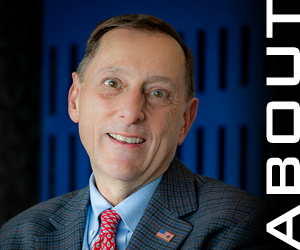Capitol Report | Fall 2024
Heading Toward a Professional Services Tax
A series of budget pressures are creating the perfect storm for a professional services tax to surface in Chicago.

Marty Green, Esq.
Senior VP and Legislative Counsel, Illinois CPA Society
The Latest on Advocacy and Legislation
Enhanced budget pressures, including those from public schools and transit systems, are creating the perfect storm for a professional services tax proposal to surface and for the City of Chicago’s Mayor Brandon Johnson to introduce a legislative initiative in Springfield. Of course, if a mayoral legislative initiative of this nature surfaces, the danger becomes a broadening proposal for a statewide tax on professional services.
A Series of Fiscal Reckonings
As it relates to Chicago’s acute budget situation, Johnson and the Chicago City Council will have to confront emerging expenditures as they begin crafting the city’s fiscal year (FY) 2025 operating budget. For example, significant annual costs, including increased pension obligations, have been added due to the adoption of a new contract with the Fraternal Order of Police. It’s also anticipated that the Chicago Firefighters Union will expect similar treatment with their contract, further adding to spiraling payroll and pension costs.
Additionally, the recently revamped Chicago Board of Education approved an operating budget for Chicago Public Schools (CPS) with a $505 million deficit. While I won’t dive into the details of CPS’ budget formulation, unfortunately, CPS leaders used one-time federal money (COVID funds) to cover long-term operating costs, and those funds have now expired. Similarly, the city used short-term federal funds for community initiatives, and those funds are also running out.
Of course, the last leg of this fiscal reckoning is Chicagoland’s public transit systems (Chicago Transit Authority, Metra, Regional Transportation Authority, et al.). As I last reported in my Summer Insight column, legislation was introduced in both the House and Senate to reform the public transit systems and provide $1.5 billion in funding, absent a funding source. At this time, the trilogy of bills hasn’t been called for a vote and remain pending in the House and Senate. Illinois State Senator and Senate Transportation Committee Chair Ram Villivalam, who sponsored the legislation, has been holding hearings throughout the Chicagoland area on public transportation access and the impact on the region. To date, funding hasn’t been discussed but is on the docket for discussion at the committee’s Oct. 16 hearing.
Similarly, Johnson tapped freshman Alderman William Hall (Ward 6) to serve as the chair of a subcommittee that’s been tasked with exploring new revenue sources for the city. At the first hearing held in June, the panel heard from city finance officials on city revenue streams and fixed expenditures. As the city begins preparation for the FY 2025 operating budget, City Budget Director Annette Guzman stated, “[W]e want the ability to go after the revenues that are needed to support the priorities of this administration.” It’ll remain to be seen whether the mayor and the city council approve a budget that’s a downpayment on the mayor’s priorities or if it includes expanded programs looking for a funding source.
The CPA Profession’s Next Steps
Suffice it to say, there are several reasons why I’m detailing this sequence of events. First, to illustrate that the threat is real. While the current state operating budget is balanced, long-term revenue projections are declining, and the crafting of the FY 2026 state operating budget will begin with a big hole based on decisions that were made for the FY 2025 state operating budget—a Chicago proposal could morph into a statewide tax on professional services. Second, to inform you that we’re taking this seriously and monitoring statements of officials and committee hearings. Please know that we’re prepared to respond to any legislative proposals that may surface. Lastly, and most importantly, we’ll need your help in leveraging your CPA credential through grassroots advocacy responses to legislators.
For the record, there’s no legislative proposal to tax services at this time. The timing of such a proposal may vary. For instance, the mayor releases his proposed city budget in September, and adoption by the city council is in December. The Illinois General Assembly has six days scheduled for veto session in November following the general election. There are also typically a few lame-duck session days where the 103rd General Assembly will complete its work before members are sworn in for the new 104th General Assembly. Of course, the legislative schedule doesn’t align with Chicago’s budget timeline. Therefore, a tax on services might just be an issue for the new 104th General Assembly to work out.
Certainly, we’ll keep you informed on this important issue as things develop. In the meantime, keep the lines of communication open and feel free to reach out with any questions or concerns you may have along the way.
Related Content:
- Lights, Camera, Fiscal Action Ahead: With the latest state operating budget over the finish line, the stage is now set for a challenging 2026 fiscal year.
- O Tax Revenue, Where Art Thou? As state and city leaders scramble to find additional tax revenues for their future fiscal budgets, they’ll likely want to steer away from taxing services. Here’s some history on why.